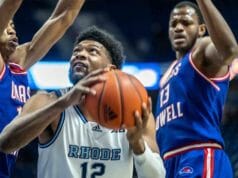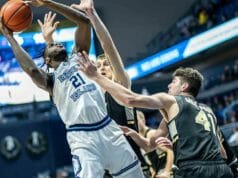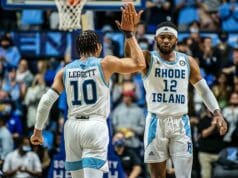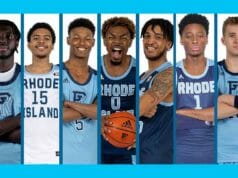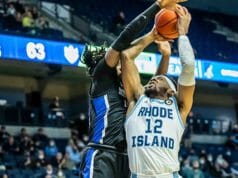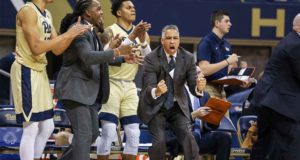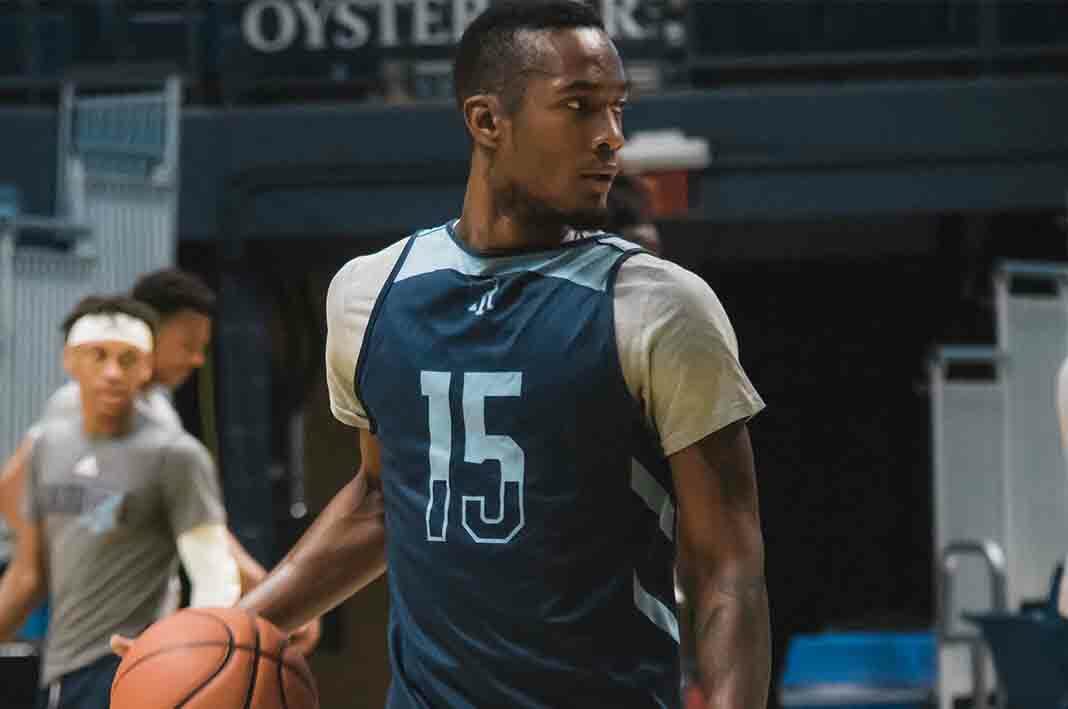
It was quite an eight day stretch for David Cox and the Rhode Island Rams men’s basketball program. Between August 17th-25th, four transfers: 6-9 forwards Makhi and Makhel Mitchell (Maryland), 6-3 guard Jalen Carey (Syracuse), and 6-6 wing Malik Martin (Charlotte) received waivers and are immediately eligible to play in 2020-21. The roster infusion takes Rhode Island from a thin team that began the month of August with seven scholarship players to one teeming with talent, depth and firepower up and down the roster.
I sat down with David Cox to discuss the waiver process, wild month, and what it means for the Rams program.
Chris DiSano: Let’s begin with the waiver process in general. For those unfamiliar, can you peel back the curtain and take folks through what goes into compiling a request for a waiver?
David Cox: Sure, it depends on the individual player and his situation… and the waiver must be in accordance with the NCAA Rules and Bylaws, which are intricate. Specifically, they ask for certain criteria to be met. For example, is the young man seeking a transfer to move closer to home because of an illness of a family member or are there other particular issues? You have to search through the rules and ask the young man to be as honest about the past situation as possible and hope that things coincide. There are layers to it, usually beginning with the young man writing an individual statement supported by family members. Another huge part of this is the school that the young man is departing to support the waiver; that goes a very long way in this process. Not just orally supporting it, but in writing as well.
The good news keep coming in! Jalen Carey is immediately eligible. Let’s go!!! #GoRhody #RamFam https://t.co/FMOtsNxQLA pic.twitter.com/M6yeEbGgMc
— Rhody MBB (@RhodyMBB) August 19, 2020
CD: It was a great week. Four waivers granted. What are your emotions relative to all being eligible?
DC: I’m certainly excited for the program and the prospects of this team getting to play together this season – which is up in the air due to the pandemic. But more importantly I’m happy for the individual players. A disruption to their typical routine for a substantial period of time – we’re talking a year – can cause different types of issues whether mentally and physically in regards to their game and development. To not have that disruption right now with all that’s going on makes me really excited for those players and their families.
CD: I know you’ve commented publicly on what the transfers will bring as players, but can we drill deeper?
DC: We can start with Jalen Carey. Not only is he obviously a tremendous talent; a young man who was ranked very highly, very well thought of coming out of high school and attended Syracuse on scholarship – he brings a certain level of maturity, poise, and leadership. He has a maturity to him as a person and it translates on the floor to a lot of success and people wanting to play with him. His production and effect on the game is impacted positively because of that, on top of his abilities.
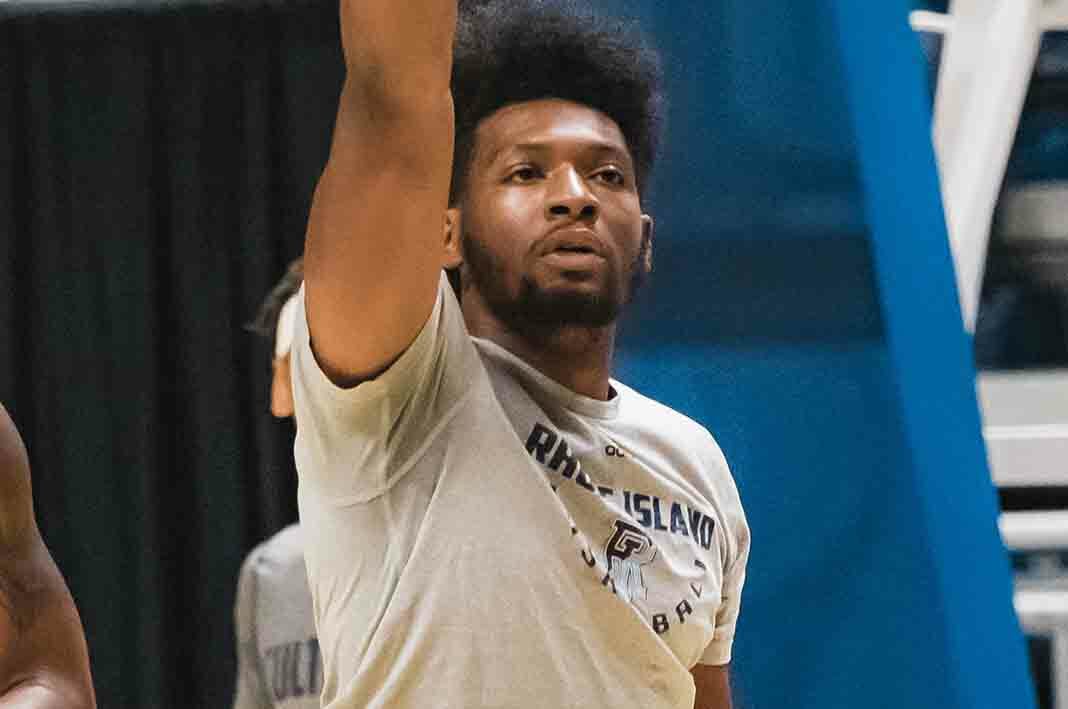
When you talk about Malik Martin, everybody is a fan of the Martin family if you know Rhody basketball because of Hassan. And you got a chance to know the family because of them coming up here over the years. Malik is another chip off the old block. What he brings is a level of experience you can’t get from a freshman. He’s also surprised me with his perimeter skills. He played the 4 for two years at Charlotte and was effective in that position because of some of the mismatches, but his overall perimeter skill is now on full display and I’ve seen that over the summer. We’ve been very impressed on what he can bring in terms of depth and experience in the back court.
(Regarding) Makhi Mitchell, he’s the young man [of the twins] who probably played the most minutes last year at Maryland. He’s just super talented and I’ve realized he’s a gamer. Both Mitchells have work to do in terms of honing their skills and tightening fundamentals. Makhi has tremendous IQ and feel for the game; he lets his talent take over. Both him and his brother’s biggest assets is their passing ability. I think the URI fans will be pleasantly surprised at how well these young men see the floor.
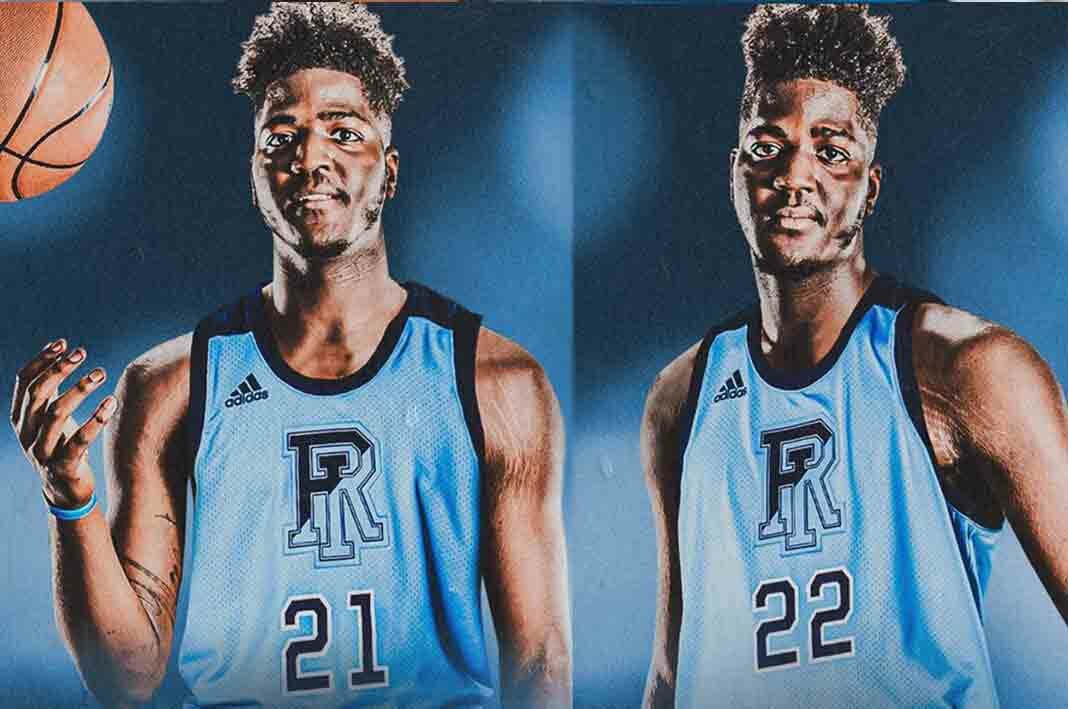
As far as Makhel, he is a true back to the basket center with the ability to step out and make 17-footers at a relatively consistent rate – and he’s working on extending his range. His presence in the paint – he has a great feel, knows how to post deep, use his body and his length – is something we haven’t had here as far as a natural skill set on the block. Obviously, Cyril [Langevine] was a productive player but was a different player who relied on his motor and athleticism. Makhel brings a tremendous skill set to that position.
Allen Betrand, who will be red-shirting and we did not put in a waiver for him, has been a pleasant surprise because of two things that really stand out about him. He’s an ultra-competitor, a true Philadelphia kid and he’s very loud and vocal on the floor. You will never not hear him during a workout or actual live competition. That energy is contagious. He’s also a super talented young man as you can tell by his numbers at Towson.
CD: One thing that Jalen mentioned recently to me is that he felt like he can play freely for you and your staff. How important is that to you, generally, to have your guys feel that way and not be looking at the bench every time they make a mistake?
DC: Fortunately, because of my experiences as a player, that’s shaped me as a young coach. And there’s nothing more important as a player – speaking about me as a player – than my actual coach, whoever it was, whether my father, AAU, CYO, high school, college, having confidence in me. That goes for any player in any sport. But specifically in regards to basketball, players need to feel confident and loose. That’s how you get the best out of your players. I want all our players to play confident, loose, and hard. I think those were things that probably rang in his ear.
CD: That’s a terrific answer and leads into my next question. Every one of these guys, in speaking with them over the last couple of weeks as I have, said that what was most important is that you and the staff were a no B.S., authentic staff during the recruitment process. How do you convey that so quickly in a transfer process?
DC: It starts with having a tremendous staff and they do a great job with identifying not only talented kids but kids who fit our mold as a recruit. We then dive right in collectively as a staff, we don’t recruit individually like a lot of schools do. They are able to, along with their families, get to know us all and feel our energy and desire to have their sons play and go to school here. And, at the end of the day, I think we’re all good people, genuine people – and I feel comfortable and confident allowing anybody on the staff to jump on Zooms and talk with these guys and families about the program.
I am glad you brought it up because, on the flip side, when you have a situation like we had the beginning of the pandemic with transfers, the immediate question asked is “What type of relationship does the staff have with these players?” You were able to get first-hand from some of these guys the actual strength of our relationships. It’s not always a negative relationship that causes a transfer, some good, some bad, sometimes it works out, sometimes it doesn’t. But this is the foundation of our program, this culture that we’ve built… being genuine and having genuine relationships with our players.
Malik Martin will be suiting up in 2020-21! The junior has received a transfer waiver from the NCAA. That’s 4-for-4, which is pretty good.#GoRhody #RamFam https://t.co/nn1mUw8QrM pic.twitter.com/iUfA9SkCI0
— Rhody MBB (@RhodyMBB) August 25, 2020
CD: Roster management as we both know is key. When you’re recruiting these guys how much does the possibility of a waiver grant factor in, if at all? Or is it simply, great kid, talented, good fit… we’re going to get him and hope it happens. How do you manage that because you need enough players to go at it?
DC: Well, I’m sure some of the fans will cringe at this response, but it isn’t an initial consideration and usually doesn’t come in until sometime down the road in the recruiting process. Obviously you’ve got to identify talent first and foremost, then establish a relationship in a quick period and see if there’s a fit, then focus on all the admission protocols from academics to compliance… then you get to waiver process. It’s down the line.
CD: Let’s shift to Fatts Russell for a minute. How happy are you for him? Here’s a kid who had opportunities to go elsewhere, pro, etc. and stuck by the program and the relationships built, and now he has a deeper, more talented cast around him for his swan song.
DC: I’m really happy for that young man. I’m really hopeful that all the Rhody fans take the time to appreciate what he has brought to the table in terms of his effort and production. Surrounding him with a talented roster was very important for us as a staff because of all he’s given to us and the depth of our relationship. It took some time to develop the level of trust we have at this point. He’s had options since after his freshman year to leave and go elsewhere and this is home for him, he’s made that very clear, and I’m hoping that everybody comes out and supports him… appreciating all he’s done for this program.
Because some days are just better than others, we’d like to announce one more time that Makhi and Makhel will be suiting up for the Rams this season! #RamFam #GoRhodyhttps://t.co/OZCojoizGI
— Rhody MBB (@RhodyMBB) August 17, 2020
CD: Depth is critically important in college basketball and the A-10. But beyond the games, how much of a tailwind is all these guys being eligible competition-wise in practice in terms of making everybody better and fueling guys?
DC: [Smiles] It’s the most ideal situation you can have as a college coach or a coach of any particular team. You need talent and depth. On a day to day basis when you’re competing for minutes in practice and trying to get better, it elevates everything: the practice, the practice reps, the competition level, and the overall strength and success of the team. It is ideal if you have aspirations of being a championship caliber team.
CD: We’re talking here in late August. Guys went home for a short break. What’s next on the immediate horizon for you all and how will you re-integrate guys as they return to campus?
DC: I’m not sure if this is common knowledge or not but because of our administration, specifically Thorr Bjorn, Brittney Miles, and the medical staff, we were able to get our players back much earlier than many schools. Our guys have been on campus for over two months, we passed a number of COVID tests, we’ve done our protocols on quarantining and isolating, and so it was time for them to go back home, re-energize, get that love from their families and come back really focused. The plan is for them to come back a little earlier than the start of school so they can make sure that they are adjusted and following any particular COVID protocols so we can get started on time.
Chris DiSano, is an Atlantic 10 analyst and writer. He has served as the host of A-10 Live! at Men’s Basketball Media Day and founded the former College Chalktalk. DiSano, who was named NBC Sports top Atlantic 10 basketball follow on Twitter for five straight years, can be found on Twitter at @CDiSano44



